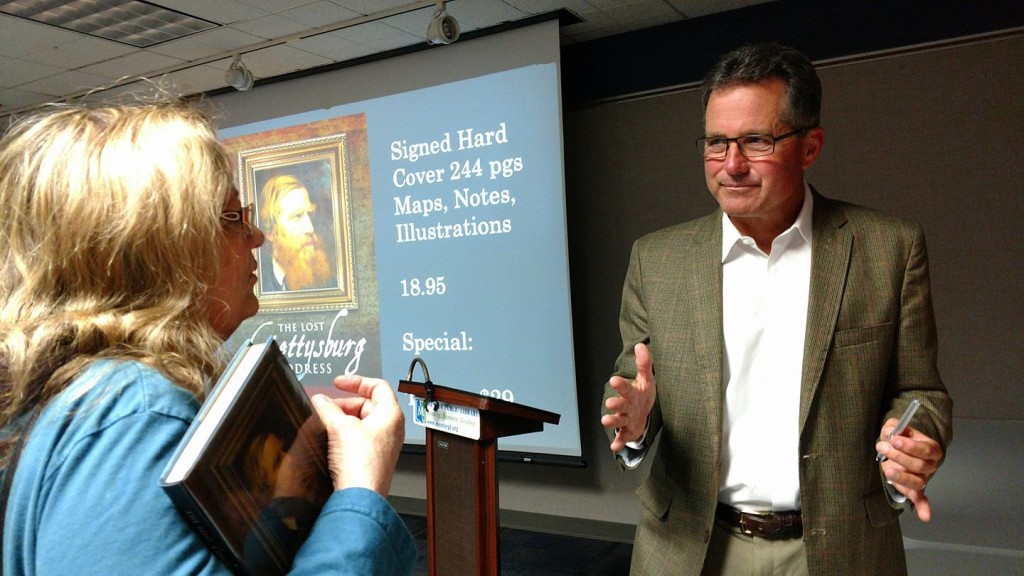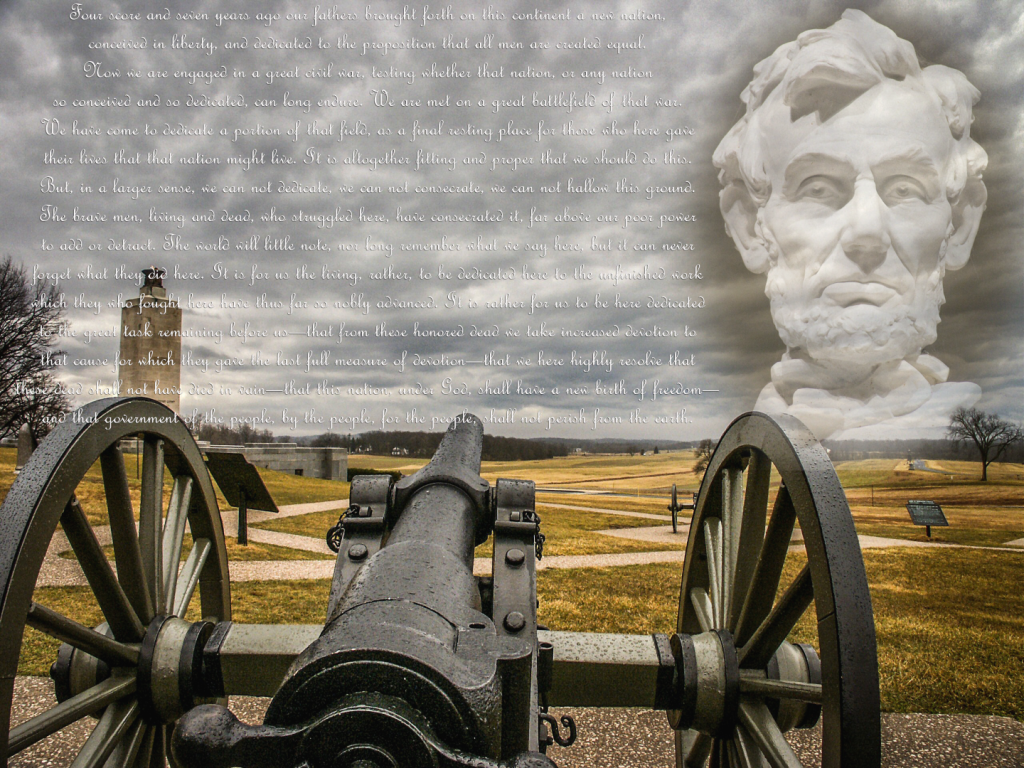11 facts about Charles Anderson & his forgotten Gettysburg Address

Historian David T. Dixon answers questions and signs books after discussing Charles Anderson and his forgotten Gettysburg Address.
Historian and author David T. Dixon visited us earlier this month to discuss former Ohio governor Charles Anderson, his wild life, and forgotten Gettysburg Address.
1. Anderson came from a connected and famous family. His father, Richard Clough Anderson, was an aide-de-camp to Marquis de Lafayette during the Revolutionary War. His brother, Robert Anderson, surrendered Fort Sumter. And his uncle was William Clark of Lewis & Clark fame.
2. Though he later found slavery distasteful, he grew up on a farm in Kentucky with twenty slaves and even had a black wet nurse.
3. He graduated from Miami University in Ohio in 1833. His graduation speech had a soporific title: An Oration on the Influence of Monumental Records upon National Morals. In it, he argued that the nation should erect a monument to George Washington. He recommended something “simple, towering, sublime” that “resemble(d) obelisks of ancient Egypt.” There’s no proof that Anderson’s recommendations influenced the eventual Washington Monument, but his suggestions do seem prescient.
4. After graduating, Anderson became a lawyer and was elected to the Ohio State Senate. Unfortunately, he alienated Democrats and even his fellow Whigs when he suggested state laws that discriminated against blacks should be abolished. He only served a single term.
5. A lifelong asthmatic, he moved from Cincinnati to San Antonio in 1859 after reading Frederick Law Olmsted’s A Journey through Texas. He thought the warm weather might improve his condition. Turns out that was a bad time for a union loyalist to move south.
(You may remember Olmsted as part of the landscape architecture firm that designed the Cleveland Metroparks.)
6. Despite being opposed to the concept of slavery and declaiming the superiority of the Anglo-Saxon peoples (a popular “scientific” assumption at the time), Anderson owned two slaves while he lived in Texas. (One, a young boy, was found murdered in the San Antonio River.)
7. After Texas seceded, Anderson was arrested and not permitted to leave the state. He escaped prison with the help of a widowed Union woman and Belgium astronomer who happened to be traveling through Texas at the time.
8. Anderson briefly served as colonel of Ohio’s 93rd during the Civil War, but he was wounded twice during the Battle of Stones River. He also contracted typhoid soon thereafter and resigned his commission.
9. Despite sharing a famous bill with Abraham Lincoln in Gettysburg, Anderson often disagreed with the president. In 1860, he endorsed John Bell for president and Edward Everett for vice president. (Anderson’s line: “Anything to defeat Lincoln. Almost anything to defeat Breckenridge.”) In 1864, Anderson again declined endorsing Lincoln. He suggested the president had a better chance navigating Niagara Falls with a dilapidated canoe and a feather for a paddle than getting his support.
10. When Anderson ran for lieutenant governor of Ohio in 1863, the opposing gubernatorial candidate, Clement Vallandigham, had already been convicted of treason and exiled to Canada. (As a Peace Democrat or Copperhead, Vallandigham had demanded the immediate end of the Civil War and was accused of being an enemy sympathizer.)
11. At Gettysburg, Anderson spoke after Everett and Lincoln at the Gettysburg Presbyterian Church. His 45-minute speech was well-received but forgotten compared to Everett’s 2-hour oratory and Lincoln’s historic comments. Decades later, when asked for a copy of his speech so it could be enshrined in Gettysburg, Anderson could not find it.
Gettysburg’s lost address seemed lost forever until an anthropologist from Indiana University East befriended Anderson’s great-grandson while visiting his ranch in Pinedale, Wyoming. The great-grandson gave the academic boxes of Anderson’s speeches, notes, and diaries, not realizing the treasures they held.


